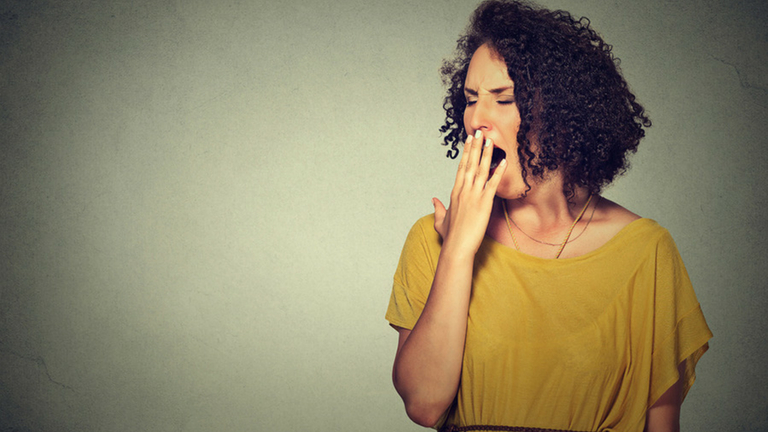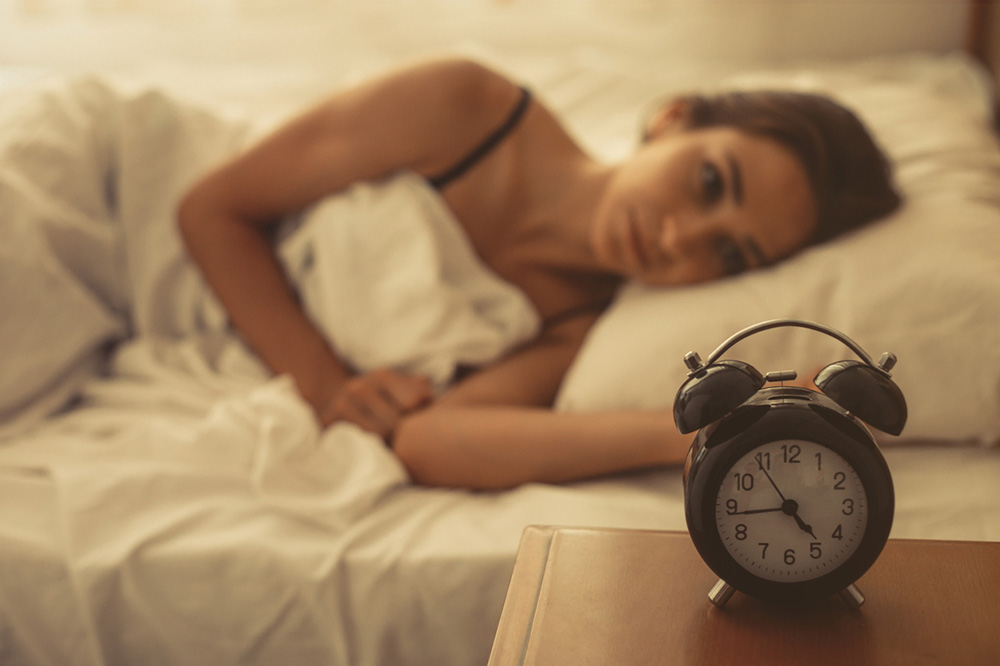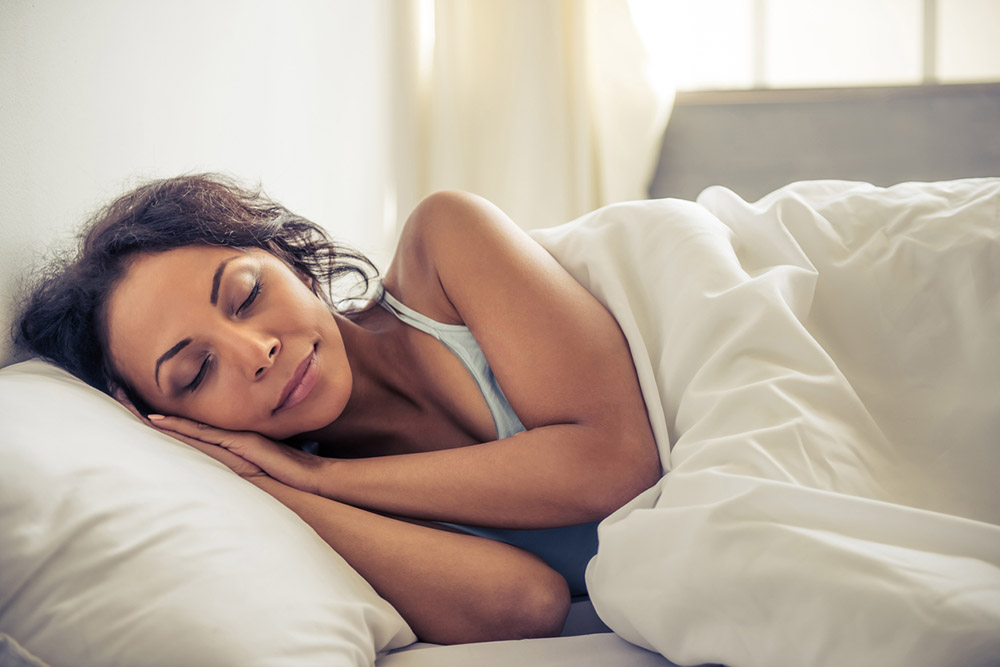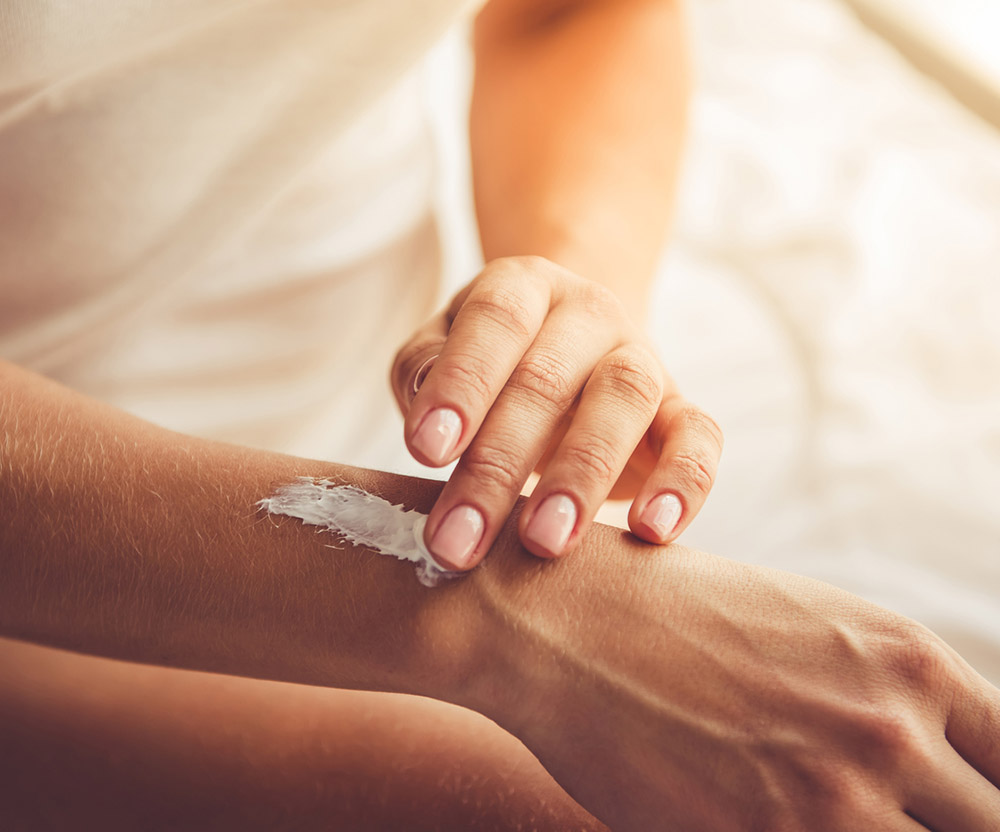Insomnia ruining your life? You may be deficient in magnesium, like many Brits, say experts. Anna Magee reports
If you can’t sleep, the chances are you’ve racked your brains and probably raked Google more than a few times, for what might be behind it.
Too much caffeine after 3pm. Not enough exercise. Not enough daylight. An overload of stress hormones such as cortisol and adrenaline keeping you too wired to sleep but too tired to do much else.
Insomnia is a huge global problem, affecting around a third of men and women in their 30s and 40s and increasing as we get older to around a half of women over 65.
There are two types, Type 1 insomnia where you can’t get to sleep and Type 2, where you can get to sleep okay, but tend to wake at least once, but often more times, during the night. Yes, that really, really frustrating one.
And if you have either type, the chances are you have heard a million and one remedies: get black out blinds, eat some peanut butter before bed, get a sleep mantra, take a Valium. Actually don’t. The latter is addictive and the formers, well, they’re hit and miss at best.
Now, mounting evidence has found that magnesium deficiency may be an underlying cause of insomnia, type 2, the early morning waking one, in particular.
In fact, clinical trials have shown that magnesium supplementation significantly increases sleep time, sleep efficiency and natural melatonin levels, a hormone critical for the regulation of normal sleep.
mounting evidence has found that magnesium deficiency may be an underlying cause of insomnia
What’s more, research has also found that those taking magnesium had significantly decreased serum cortisol levels in comparison to a placebo. Cortisol is a steroid hormone responsible for the bodies stress response.
Now, new research has found that magnesium applied transdermally – that is, through the skin – can deliver the mineral to the body quicker and more efficiently than ingested supplements and help improve sleep quality in a staggering 92 per cent of study respondents. More on that in a moment.
Signs of magnesium deficiency
Indeed, waking in the small hours is often associated with stress, anxiety or depression and these are conditions that can be exacerbated by magnesium deficiency, says leading nutritionist Greg Weatherhead. But there are many more.
‘Magnesium is one of the most abundant minerals in the body and all our cells rely on adequate levels being maintained,’ says Weatherhead. ‘It’s responsible for over 300 biochemical functions in the body and sufficient amounts allow us to be more flexible, develop stronger bones, produce energy more efficiently and be better able to resist disease.’

While magnesium is predominantly found in nuts, wholegrain seeds and green leafy vegetables such as spinach and kale, decreasing levels in our Western diets have long been reported and amounts in our most common foods have declined by about 20 per cent since the 1950s, Weatherhead asserts.
In fact, the most recent government funded UK Diet and Nutrition Report updated in March this year, showed that more and more of us have below optimal intakes of magnesium, with teenage girls and the over 60’s being at particular risk of deficiency.
Moreover, diets that include an excess of processed foods and bad fats such as those found in takeaways, donuts and commercial vegetable oils as well as refined sugars can all decrease our magnesium levels.
Signs of magnesium deficiency include:
- Poor quality sleep
- Stress
- Anxiety
- Restless legs
- Joint discomfort
- Muscle tension and pain
- Muscle or eye twitching
- Weak bones
- Low mood
- Headaches
- Migraines
- Poor concentration
How magnesium helps sleep
So, how can supplementing with a drug free mineral help people sleep, when so many other sleep remedies rarely make the cut?
‘Magnesium is critical to many physiological and psychological processes that are essential for staying asleep,’ Weatherhead says. These include calming the mind and also helping muscles relax.
Along with helping to reduce levels of cortisol and adrenaline that could be waking us during sleep or causing erratic slumber, magnesium also works on a lesser known hormone essential to sleep.
‘It helps improve sleep quality through its interaction with a neurotransmitter called GABA (gamma-aminobutyric acid). ‘GABA is an amino acid responsible for reducing anxiety, promoting relaxation and preparing our bodies for sleep,’ he continues.
Magnesium sensitises GABA receptors in the brain, increasing the positive effect of this molecule.
Why magnesium on skin is better for insomnia than tablets
‘Unfortunately, our intake of magnesium has declined dramatically due to intensified farming methods, food processing and negative interactions with an increasing number of prescribable mediations,’ says Weatherhead.
‘Magnesium is a mineral we evolved to have little and often and our digestive systems are not well equipped to absorb large single doses of magnesium such as those found in tablets and capsules.
‘Either, much of the dose is simply not broken down and absorbed or it is lost through a loosening of the bowels, a common effect seen with a high intake of ingested magnesium tablets.’
There are a number of clinical studies published showing that magnesium delivered via the skin is an effective alternative to traditional tablet supplementation, says Weatherhead.
In 2017, a study published in PLOS One, found that magnesium absorbed through skin significantly boosted magnesium levels in the blood.
A pilot study published in 2010 showed that BetterYou Magnesium could elevate cellular magnesium levels faster than traditional tablets or capsules.
Topical magnesium specialists BetterYou have worked with the Cardiff University academics on absorption testing for magnesium.
They are now in the final stages of the world’s first clinical study with St. Mark’s Hospital London, investigating how magnesium applied to the skin can replace intravenous drips and subcutaneous injections for patients with severe bowel and digestive disorders.
The £10 cream proven to help improve sleep quality
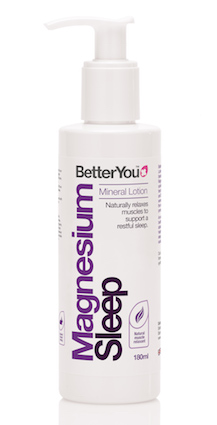
The new sleep lotion contains magnesium chloride, which has been proven to be quickly absorbed into the skin via the pores and in particular, the hair follicles within the skin.
In a recent clinical trial, 78 self-confessed poor sleepers kept an online sleep diary for five weeks. In the first week they carried on with their normal routine and in the next four weeks they introduced four pumps (150mg) of magnesium sleep lotion half an hour before bed.
At the beginning and end of the study, carried out by research company Sensory Dimensions, participants were asked to fill in the NHS Sleep Self-Assessment Questionnaire and online assessments were also taken of their sleep quality three times a week.
Staggeringly, 92 per cent of study subjects demonstrated improvements in their sleep with particular improvement in those that had trouble staying asleep.
There were also statistically significant increases in their overall sleep quality, their time taken to fall asleep and their waking times.
Participants also reported improvements in their quality of life including feeling less tired, more rested, more energetic and more sociable.
Staggeringly, 92 per cent of study subjects demonstrated improvements in their sleep
Magnesium Sleep Lotion £9.95 for adults and £8.95 for children can be used whilst pregnant too. Weatherhead advises using four pumps on the neck, shoulders and legs half an hour before bed to get 150mg magnesium, though the lotion can be used all over the body.
If you wake in the middle of the night you can also re-apply to help relax you and get you back to sleep, Weatherhead advises.
‘The speed of absorption means that the product is an effective treatment for any muscle tension that may disturb sleep and so can be applied if you wake at night,’ he says.
Not bad for less than a tenner.
More Healthista Content:
9 symptoms of magnesium deficiency that could be ruining your life
The natural insomnia fix you’ve never heard of
Got insomnia? These 11 foods are proven to help you sleep
How St John’s Wort can help elevate mood and improve sleep
Like this article? Sign up to our newsletter to get more articles like this delivered straight to your inbox.



